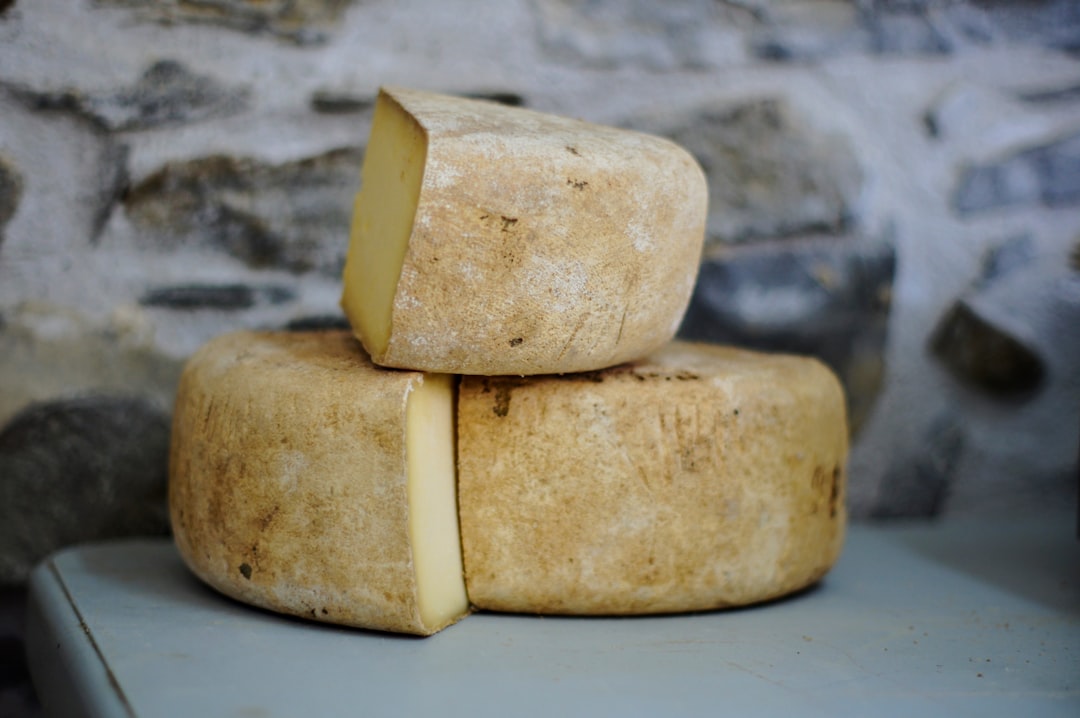Idiazábal cheese
With its nutty and smoky aroma, Idiazábal cheese is made in the style of a raw sheep’s milk cheese. Its subtle complexity along with its supple, slightly salty taste make it an ideal accompaniment for a range of dishes or consumed as an appetiser.
The origin of this revered cheese dates back to ancient times. Its production method has been perfected by the centuries old shepherds of the Pyrenees mountains, with many of them still using the same techniques to this day. Consequently, it is a product of remarkable character, boasting a distinctive smoky zest derived from an artisanal smoking process.
Using only the finest ingredients, all Idiazábal cheese is made in the most ecologically responsible way possible. The cheese is rested in specialized cellars on boards made of either chestnut wood or holm oak, which gives the cheese its specific flavor and protects it from any foreign impurities.
Idiazábal cheese is an unmatched gastronomic indulgence, one that can elevate any plate. A veritable gourmet delight, the rich and creamy cheese will provide a superior taste, one that is sure to tantalize the palates of even the most discerning epicures. As such, it is an ideal gift for those who appreciate fine food, and an unmissable addition to any cheese platter.
Idiazábal cheese recipes
Amazing Idiazábal cheese recipes sourced from the web.
The origin of Idiazábal cheese
It was in the misty hills of Navarre, centuries ago, that the seductive Idiazábal cheese was first created. Etymologically derived from the Basque words for "good" and "valley", this exceptional cheese is renowned for its distinct pyramidal shape and smoky, pungent flavor.
Long before modern technology was introduced into cheese-making, the shepherds of Navarre developed a unique process of smoking their cheeses over smoldering embers of black oak. The resulting piquancy of the Idiazábal cheese was unlike any other at the time, and its popularity spread quickly throughout the region.
The traditional preparation of Idiazábal cheese involves special aging techniques, where the cheese is left exposed to the elements in lofts and caves for several months. This curing process helps to develop the exquisite tastes and textures that have come to define the cheese.
Once mature, Idiazábal cheese is then smoked with aromatic, resinous wood chips. The smoke penetrates the paste of the cheese, intensifying its earthy flavors and leaving an unmistakable smoky finish.
Despite the challenging production methods required to prepare Idiazábal cheese, the results are certainly worth the effort. The cheese is highly sought-after by both chefs and connoisseurs alike, and is truly a legendary delicacy among the culinary elite. As such, it serves as a reminder of the unique culture and traditions still found in Navarre today.
Types of Idiazábal cheese
Idiazábal cheese may be the darling of Basque cuisine, but it’s hardly the only option in town when it comes to savoring its delightfully subtle flavor. Different types of Idiazábal cheese offer a range of taste sensations, from mild to intense and everything in between. One of the best ways to explore the nuances of these distinct varieties is to sample them separately, so let’s take a closer look at some of the more popular versions of this Spanish delicacy.
To start, there is the “curado” Idiazábal cheese, made with raw sheep's milk that has been aged for at least three months. This type of Idiazábal cheese is characterized by its semi-hard texture and strong but pleasant aroma. Its taste is complex, with a tangy, nutty quality that verges on piquant. This sharp flavor can be quite assertive, particularly if you choose a cheese that has been aged for longer periods, so it is best suited to those who enjoy a little punch to their palate.
Another widely available type of Idiazábal cheese is the "tronchón", which is made with pasteurized cow's milk and aged for a minimum of two months. Generally softer and more delicate than its curado counterpart, the tronchón variety has a milder aroma and a mild, buttery taste. Its creamy consistency and subtle flavor make it an ideal choice for those looking for a milder experience.
Finally, there’s the “mahón” variety, made from pasteurized sheep's milk and aged for different amounts of time. Mahón Idiazábal cheese has a distinct tangy flavor due to its lactic acid content, as well as a slight grassy aroma. Depending on how long it is aged, it can be quite pungent, or mellow and milky. As such, this type of cheese suits those who like their Idiazábal cheese with a bit of a kick.
No matter what type of Idiazábal cheese you choose, you can be sure of one thing: you’re in for a delicious culinary adventure. With its carefully crafted flavors and textures, this Basque specialty is sure to leave you feeling satisfied and wanting more.



